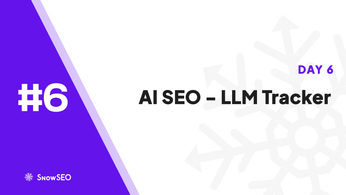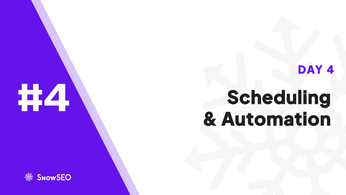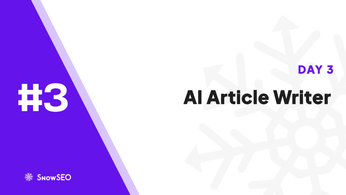
How to Maximize SEO on a Budget
Table of Contents
Struggling to boost your business’s online presence without breaking the bank? Many small businesses believe effective SEO is too expensive to implement, watching competitors climb search rankings with hefty budgets. In reality, a handful of budget-friendly tools and tactics can deliver powerful results when applied thoughtfully. Discover proven strategies-from leveraging Google Analytics for free insights to harnessing Ahrefs Free Tools and Ubersuggest for keyword research-that fit tight budgets and drive real traffic. Backed by expert insights and case studies, this guide lays out step-by-step methods to elevate your visibility, engage more visitors, and convert prospects without overspending. Whether you’re a startup founder or a local shop owner, you’ll gain actionable tips and a clear roadmap to sustainable growth through cost-effective SEO.
Understanding SEO on a Budget
Optimizing your online presence doesn’t have to drain your resources. For startups and small businesses, SEO for startups can be a game changer-fueling organic growth without hefty fees. Embracing DIY SEO hacks empowers teams to tackle keyword research, on-page tweaks, and link building with creativity rather than cash.
Why Budget-Friendly SEO Matters
Bootstrapped ventures face fierce competition. Allocating limited funds to high-impact SEO activities ensures every dollar works harder. Here’s why it’s essential:
- Cost Efficiency
- Prioritizes free or low-cost tools like Google Analytics and Ubersuggest
- Leverages existing assets-blogs, social channels, community forums
- Sustainable Growth
- Builds long-term equity through evergreen content
- Reduces reliance on paid ads, cutting ongoing costs
- Empowered Teams
- Fosters in-house expertise, minimizing agency bills
- Encourages cross-functional collaboration on content and technical tasks
Tip: Start with a small SEO audit. Identify quick wins-missing meta descriptions, broken links, and image alt tags-to boost visibility fast.
Balancing time and tactics is key. Small tweaks compound into significant gains when executed consistently. Below is a snapshot comparison of common budget-friendly approaches:
| Strategy | Investment | Expected Impact | Time to Results |
|---|---|---|---|
| Keyword Optimization | Free | Moderate | 2-4 weeks |
| Content Repurposing | Low (staff time) | High | 1-2 months |
| Backlink Outreach | Free (emails) | Variable | 3-6 months |

Essential Budget-friendly SEO Tools
Small businesses often juggle tight budgets and high growth ambitions. The right SEO tools for small businesses can level the playing field, helping you uncover keyword opportunities, monitor performance, and fix technical issues-without breaking the bank.
Top Free Tools to Consider
- Google Search Console
- Monitor your site’s presence in Google results
- Identify indexing errors and core web vitals issues
- Submit sitemaps and track keyword performance
- Google Analytics
- Dive deep into user behavior and traffic sources
- Set up goals to measure conversions on a shoestring budget
- Access real-time and historical data for informed decisions
- Bing Webmaster Tools
- Expand reach beyond Google by optimizing for Bing’s search engine
- Analyze backlinks and crawl issues
- Ubersuggest (Free Tier)
- Conduct keyword research and view search volume trends
- Track basic rank positions and competitor domains
- Screaming Frog SEO Spider (Free Version)
- Crawl up to 500 URLs to spot broken links and duplicate content
- Generate XML sitemaps for submission
Tip: Combining Google Search Console with Bing Webmaster Tools covers over 90% of global search traffic for zero cost.

Free vs. Freemium Tool Comparison
| Tool | Free Features | Paid Upgrade Benefits |
|---|---|---|
| Google Search Console | Indexing reports, performance data | N/A (always free) |
| Google Analytics | Comprehensive user and traffic analytics | Advanced AI insights with GA4 360 |
| Ubersuggest | Limited daily keyword searches, basic site audit | More keyword volume, historical data depth |
| Screaming Frog (Lite) | Crawl 500 URLs, basic reporting | Unlimited crawl, custom extraction |
| Yoast SEO (WordPress plugin) | On-page optimization guidance, readability checks | Redirect manager, internal linking tips |
Insight: According to the U.S. Small Business Administration, mastering no-cost platforms like Google Search Console lays the foundation for long-term SEO success (marketing guide).
By strategically blending these tools, small businesses can uncover actionable insights, prioritize high-impact fixes, and track growth-all while staying within budget. This toolkit empowers you to tackle everything from technical audits to keyword discovery, ensuring your SEO efforts deliver measurable results.
Innovative DIY SEO Hacks
Tapping into DIY SEO hacks empowers small teams to boost rankings without hefty agency fees. By leveraging creativity and free tools, you can outperform competitors on a shoestring budget.
Content Hacks that Work
Crafting magnetic content doesn’t require a pro. These strategies help you attract clicks, engagement, and shares:
- Keyword Clustering
Organize related terms into clusters around pillar topics. This approach signals depth to search engines and keeps readers exploring your site. - Skimmable Formatting
Use headings, bullet points, and bold text to break up copy. Readers love bite-sized insights, and clear structure reduces bounce rates. - Smart Internal Linking
Guide visitors to high-value pages with contextual links. Boosts session duration and distributes authority throughout your site.
Tip: Leverage Ahrefs Free Tools to identify keyword clusters and track internal link performance without spending a dime.
Quick Comparison of Top DIY Content Hacks
| Hack | Benefit | Tool Recommendation |
|---|---|---|
| Keyword Clustering | Stronger topical authority | Ubersuggest |
| Skimmable Formatting | Lower bounce, higher dwell time | Grammarly (format checker) |
| Smart Internal Linking | Improved crawlability | Google Analytics |
- Identify 5–10 seed keywords using Ubersuggest.
- Group them by search intent (informational, transactional).
- Outline pillar and cluster pages, assigning primary and secondary keywords.
- Draft content with clear headings, emphasizing LSI terms.
- Link cluster pages back to pillars for a solid site architecture.
Important: Regularly update cluster pages to capitalize on trending topics and maintain relevance.
Advanced DIY Twist
- Repurpose top-performing blog posts into infographics or short videos.
- Submit to free content syndication platforms like Medium and LinkedIn to amplify reach.
- Engage in niche forums and answer questions, linking back to your cluster pages.
By mixing structured frameworks with creative repurposing, these DIY SEO hacks transform ordinary content into powerful traffic generators-all without breaking the bank.
Measuring Success on a Budget
Tracking SEO metrics for small businesses doesn’t have to break the bank. By focusing on a handful of high-impact indicators and using free tools like Google Analytics and Google Search Central, you can gauge progress and justify your efforts.
After you set up your analytics tools, start by understanding which numbers matter most for growth.
Key Metrics to Monitor
- Organic Traffic Growth
- Measures the increase in users arriving via search engines.
- Aim for 20–30% year-over-year growth to stay competitive.
- Keyword Ranking Positions
- Track top 10 target keywords to see movement in SERPs.
- Use free tools like Ubersuggest or Ahrefs Free Tools for weekly checks.
- Click-Through Rate (CTR)
- Percentage of impressions that turn into clicks.
- A healthy homepage CTR sits around 28% for position one, dropping to under 2% by position ten.
- Bounce Rate & Dwell Time
- Bounce rate above 70% signals content or UX issues.
- Monitor average time on page to ensure visitors engage.
- Conversion Rate from Organic Search
- Track forms submitted, purchases, or sign-ups.
- Top performers achieve 10%+, but starting with 2–5% is realistic.
- Core Web Vitals
- LCP under 2.5 s, FID under 100 ms, CLS under 0.1.
- Use Google Search Central tools to audit page experience.
Tip: Prioritize metrics that tie directly to revenue. If your primary goal is lead capture, focus on form completions and click-through rates over raw traffic.
| Metric | Ideal Benchmark | Tool |
|---|---|---|
| Organic Traffic Growth | +20–30% YoY | Google Analytics |
| CTR | 28% (position one) | Google Search Central |
| Bounce Rate | <60% | Google Analytics |
| Conversion Rate | 2–5% (up to 10%+) | Google Analytics |
| Core Web Vitals | LCP <2.5 s, FID <100 ms | Google Search Central |
Having explored practical, budget-smart SEO tactics, it’s time to take your strategies from theory to results. SnowSEO (https://snowseo.com) streamlines every step we’ve covered-automating keyword research, crafting hyper-personalized content, tracking performance, and monitoring competitors-so you can focus on growth, not juggling multiple tools. Imagine generating AI-optimized articles that resonate like human-written copy, publishing directly to your CMS, and receiving weekly SEO and GEO reports without lifting a finger. That’s the power of an all-in-one platform designed for small teams and lean budgets.
Ready to accelerate your organic traffic and outpace competitors on both search engines and AI platforms? Start by signing up for a free trial of SnowSEO, schedule a live demo with our 24x7 AI-powered SEO experts, or explore our self-guided onboarding to discover content gaps automatically. With seamless integrations and automated workflows, SnowSEO reduces complexity and slashes costs, so you can reinvest savings into scaling your business.
Start implementing these strategies today for cost-effective results.
Frequently Asked Questions
Q1: How can small businesses track SEO performance without spending much?
Using free tools like Google Analytics and Ahrefs Free Tools, you can monitor organic traffic, bounce rates, and user behavior. Start by setting up goals in Google Analytics to measure conversions. Then, use Ahrefs’ Site Explorer to check keyword rankings and backlink profiles. Regularly export reports and review trends monthly to spot quick wins.
Q2: What on-page SEO tactics work best on a tight budget?
Focus on optimizing title tags, meta descriptions, and header structures. Conduct keyword research using Ubersuggest to find low-competition terms. Prioritize internal linking to boost authority across pages, and compress images for faster load times. Regularly update existing content with fresh data and include related keywords to maintain relevance.
Q3: How often should I update my content for optimal results?
Aim to refresh cornerstone articles every 3–6 months. Use audit tools to identify pages with declining traffic or outdated information. Add new statistics, update examples, and tweak headings based on current search intent. Consistent updates signal search engines that your site remains authoritative and valuable.
Conclusion
Wrapping up, maximizing SEO on a budget is not only achievable but can deliver powerful results when you focus on strategy over spend.
Key Takeaways:
- SEO doesn’t have to be expensive.
- Leveraging the right tools can maximize your efforts.
- DIY hacks can significantly boost your online presence.
Important: Consistent effort and smart use of free resources often outperform big-budget campaigns that lack focus.
Start implementing these strategies today for cost-effective results. Whether you dive into detailed keyword research with Google Analytics, audit your site structure using free crawlers, or fine-tune your on-page elements, every small step compounds over time.
Next Steps:
- Explore additional resources on budget-savvy online marketing.
- Join SEO communities and forums to share tips and learn from peers.
- Track performance regularly and iterate based on insights.
By combining pragmatic tools like Ubersuggest or Ahrefs Free Tools with proven DIY approaches, you can steadily climb search rankings without breaking the bank.





